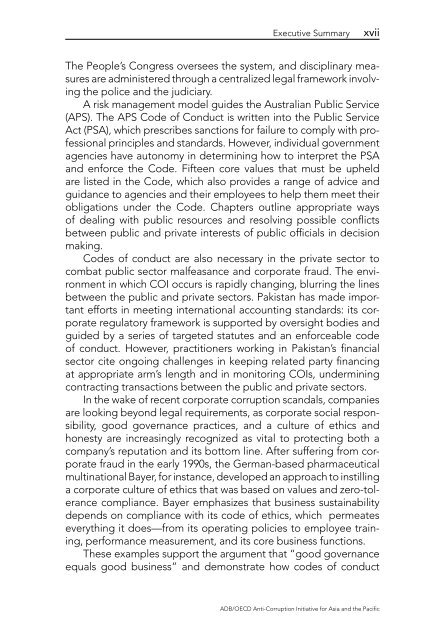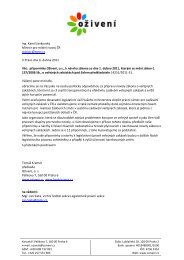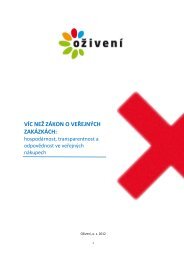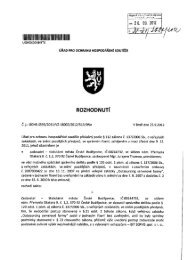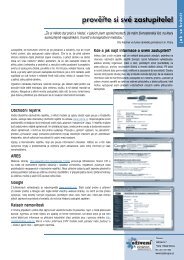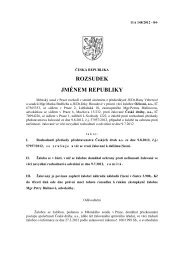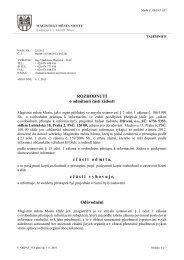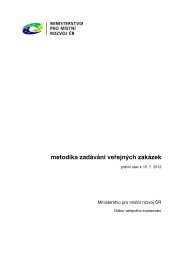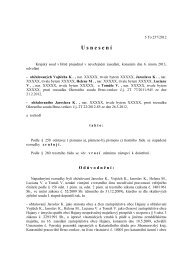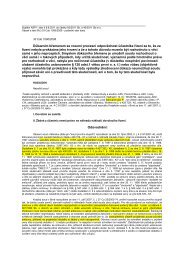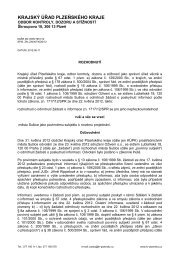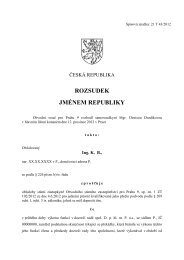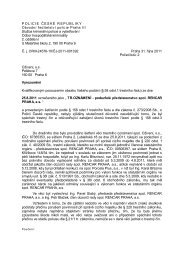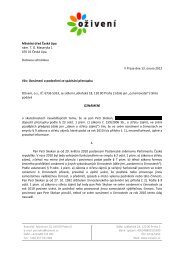Managing Conflict of Interest - Organisation for Economic Co ...
Managing Conflict of Interest - Organisation for Economic Co ...
Managing Conflict of Interest - Organisation for Economic Co ...
You also want an ePaper? Increase the reach of your titles
YUMPU automatically turns print PDFs into web optimized ePapers that Google loves.
Executive Summary xviiThe People’s <strong>Co</strong>ngress oversees the system, and disciplinary measuresare administered through a centralized legal framework involvingthe police and the judiciary.A risk management model guides the Australian Public Service(APS). The APS <strong>Co</strong>de <strong>of</strong> <strong>Co</strong>nduct is written into the Public ServiceAct (PSA), which prescribes sanctions <strong>for</strong> failure to comply with pr<strong>of</strong>essionalprinciples and standards. However, individual governmentagencies have autonomy in determining how to interpret the PSAand en<strong>for</strong>ce the <strong>Co</strong>de. Fifteen core values that must be upheldare listed in the <strong>Co</strong>de, which also provides a range <strong>of</strong> advice andguidance to agencies and their employees to help them meet theirobligations under the <strong>Co</strong>de. Chapters outline appropriate ways<strong>of</strong> dealing with public resources and resolving possible conflictsbetween public and private interests <strong>of</strong> public <strong>of</strong>ficials in decisionmaking.<strong>Co</strong>des <strong>of</strong> conduct are also necessary in the private sector tocombat public sector malfeasance and corporate fraud. The environmentin which COI occurs is rapidly changing, blurring the linesbetween the public and private sectors. Pakistan has made importantef<strong>for</strong>ts in meeting international accounting standards: its corporateregulatory framework is supported by oversight bodies andguided by a series <strong>of</strong> targeted statutes and an en<strong>for</strong>ceable code<strong>of</strong> conduct. However, practitioners working in Pakistan’s financialsector cite ongoing challenges in keeping related party financingat appropriate arm’s length and in monitoring COIs, underminingcontracting transactions between the public and private sectors.In the wake <strong>of</strong> recent corporate corruption scandals, companiesare looking beyond legal requirements, as corporate social responsibility,good governance practices, and a culture <strong>of</strong> ethics andhonesty are increasingly recognized as vital to protecting both acompany’s reputation and its bottom line. After suffering from corporatefraud in the early 1990s, the German-based pharmaceuticalmultinational Bayer, <strong>for</strong> instance, developed an approach to instillinga corporate culture <strong>of</strong> ethics that was based on values and zero-tolerancecompliance. Bayer emphasizes that business sustainabilitydepends on compliance with its code <strong>of</strong> ethics, which permeateseverything it does—from its operating policies to employee training,per<strong>for</strong>mance measurement, and its core business functions.These examples support the argument that “good governanceequals good business” and demonstrate how codes <strong>of</strong> conductADB/OECD Anti-<strong>Co</strong>rruption Initiative <strong>for</strong> Asia and the Pacific


